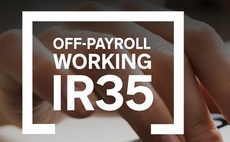Accountants, law firms and contractor representatives speak out on the Chancellor's leaked tax plans for contractors
Experts have weighed in on leaked Budget proposals to clamp down on the use of personal-service firms by contractors - proposals that come just a year after a Budget that restricted tax relief for ...
To continue reading this article...
Join Computing
- Unlimited access to real-time news, analysis and opinion from the technology industry
- Receive important and breaking news in our daily newsletter
- Be the first to hear about our events and awards programmes
- Join live member only interviews with IT leaders at the ‘IT Lounge’; your chance to ask your burning tech questions and have them answered
- Access to the Computing Delta hub providing market intelligence and research
- Receive our members-only newsletter with exclusive opinion pieces from senior IT Leaders




















